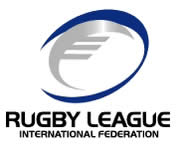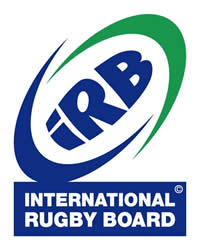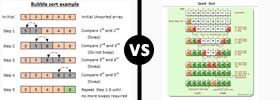Difference between Rugby League and Rugby Union
Key Difference: League allows 13 players on the field, Union allows 15. A six tackle rule is followed in the League, but no such rule exists in the Union. A ball out of play is awarded a scrum in League and a line-out in Union. ‘Maul’ and ‘Ruck’ have been replaced with a play-the-ball restart in the League. Scoring in both games are also different.
 Rugby League and Rugby Union are both formed from the Rugby football. Rugby was originally separated because of different beliefs. The split happened in 1892, when Yorkshire clubs faced professionalism charges for compensating their players for missing work to come play rugby. The Rugby Football Union (RFU) rejected the proposal of paying compensation to players for missing work. The Yorkshire clubs received support from Lancashire clubs and split to form the Northern Rugby Football Union.
Rugby League and Rugby Union are both formed from the Rugby football. Rugby was originally separated because of different beliefs. The split happened in 1892, when Yorkshire clubs faced professionalism charges for compensating their players for missing work to come play rugby. The Rugby Football Union (RFU) rejected the proposal of paying compensation to players for missing work. The Yorkshire clubs received support from Lancashire clubs and split to form the Northern Rugby Football Union.
Though the original split was due to differences in culture and beliefs, the Union has drastically changed the rules for the sport. In Rugby Union, 15 players are allowed on the field during game play, while in League only 13 players are allowed. Other major differences surround the tackle. In League, players are allowed 6 tackles before handing the ball over, while in Union, the players can continue contesting the ball after 6 tackles.

In League, after a tackle the player must drop and roll the ball behind him with his foot. In Union, if the player holding the ball is tackled, anyone on their feet can pick up the ball as long as they come from an onside position. In League, if a ball is out of play, a scrum is awarded to the opposing team to re-start the game. In Union, a line-out is awarded to re-start the game. In League, a tackler can strip the ball from the attacking player. ‘Maul’ and ‘Ruck’ have been replaced with a play-the-ball restart in the League.
The scoring also slightly differs. In League a try is worth 4 points, goal is worth 2 points, field goal or drop goal worth 1 point. In Union a try is worth 5 points, conversion kick worth 2 points, penalty kick or drop goal worth 3 points each. In players and positions, League does not have flankers, while flankers exist in the Union.
|
|
Rugby League |
Rugby Union |
|
Number of Umpires/Referees |
A referee and two touch judges are mandated, timekeeper is optional |
1 referee; 2 assistant referees |
|
Time limit |
2 halves of 40 minutes |
2 halves of 40 minutes |
|
Timeout |
No time outs allowed |
No time outs allowed |
|
Object of the Game |
To score point through tries, goals (also known as conversions) and field goals |
The object of the game is to score points by touching the ball down on the opponent’s try line or kicking the ball through the goal posts. |
|
Substitution |
10 substitutions allowed in a game |
7 substitutions allowed in a game |
|
Number of players |
13 on the field |
15 on the field |
|
Field |
Between 112 and 122 meters long by 68m wide. The distance between try-lines is always 100 meters |
100 meters (330 ft) long and 70 meters (230 ft) wide |
|
Ball |
A prolate spheroid shaped ball that is 280-300mm in length, 740-770mm in circumference of length and 580-620mm in circumference of width. |
A prolate spheroid shaped ball that is 280-300mm in length, 740-770mm in circumference of length and 580-620mm in circumference of width. |
|
Protective gear |
Mouthguards, head gear that is not thicker than 10mm, non-rigid shoulder pads and shin pads. |
Mouthguards, head gear that is not thicker than 10mm, non-rigid shoulder pads and shin pads. |
|
Penalties |
Kicks are awarded |
Kicks or scrums are awarded |
|
Governing Body |
Rugby League International Federation |
International Rugby Board |
|
Scoring |
A try is worth 4 points, goal is worth 2 points, field goal or drop goal worth 1 point |
A try is worth 5 points, conversion kick worth 2 points, penalty kick or drop goal worth 3 points each. |
Image Courtesy: wikimedia.org, lmsc.com.au









Comments
Good info
john
Tue, 12/16/2014 - 17:19
Add new comment